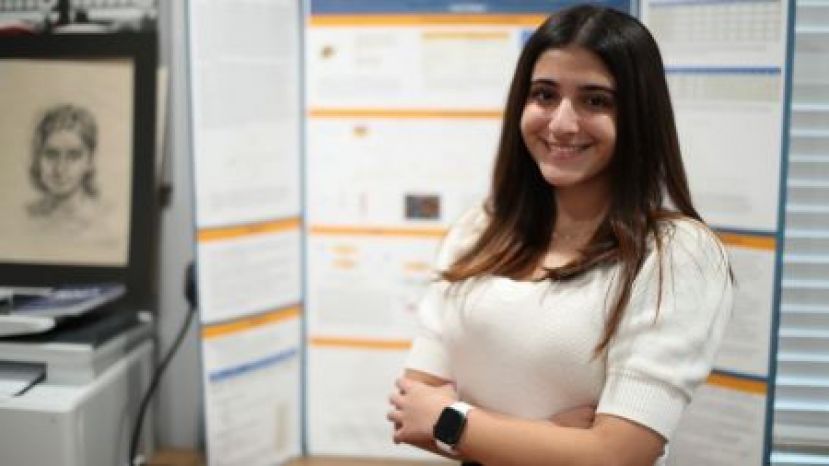Empowering Women Through Technology: Lara Ozkan’s Vision for Inclusive Health Solutions
- Written by Admin TOA
- Published in Academicians
Lara Özkan's journey into the realms of Computer Science and Molecular Biology is a testament to her passion for solving complex biological problems through innovative research. Her academic path began as a wet-lab researcher at the Izmir Institute of Technology, where she worked on a project aimed at targeting breast cancer with nanocarriers for combinational drug delivery. This experience opened her eyes to the potential of integrating deep biological understanding with computational science skills. Unlike many who specialize in either biology or computer science, Özkan found a deep interest in the intersection of both fields. The high-dimensional and complex data emerging from biological samples intrigued her, driving her to use computer science tools to decode these intricate puzzles. This led her to delve into data science for biology and conduct computational biology research at Cold Spring Harbor Laboratory. These experiences have paved the way for her current academic career at MIT, where she is pursuing dual majors in Computer Science and Molecular Biology and engaging in computational biology research at the MIT Media Lab and MIT Computer Science and Artificial Intelligence Laboratory (CSAIL).
Özkan's focus on the ethical dimensions of Women's Health and FemTech industries was further solidified during her tenure as a SERC Scholar at the Schwarzman College of Computing. This role allowed her to lead a research project that explored the ethical aspects of women’s health research and FemTech companies. Her research tackled critical issues such as data privacy, the accessibility and inclusivity of health technologies, and the reliability of information provided by FemTech products. This project also examined how these technologies could empower women while recognizing the risks of marginalizing certain groups.
Her background in computational biology and data analytics is central to her current research, which investigates the genetic differences between men and women in Alzheimer’s Disease (AD). Motivated by her work with the Women’s Health SERC Scholarship Program, Özkan is exploring sex-specific genetic variations in AD through detailed molecular studies. The goal of her research is to understand Alzheimer’s Disease comprehensively by capturing these sex-specific variabilities and using this knowledge to develop personalized therapeutic approaches.
Integrating ethical considerations into healthcare technology, especially concerning women's health, poses several challenges. Key issues include ensuring data privacy and security, overcoming implicit biases in technology design and algorithm development, and addressing accessibility and inclusivity concerns. These challenges necessitate a multidisciplinary approach, combining expertise from computer science, ethics, healthcare, and policy-making.
Özkan is also dedicated to disseminating her research findings to impact policy, industry, and academia. Her involvement with Professor Canan Dagdeviren on the Breast Ultrasound Patch project, published in July 2023 in Science Advances, exemplifies this commitment. The project developed a wearable device designed for frequent breast cancer monitoring, aimed at improving early detection. Following the publication, the project joined the MIT Deshpande Center for Technological Innovation Grant program to transition from research to commercialization.
Looking to the future, Özkan envisions leveraging technology, ethics, and science to address societal challenges, particularly in women’s health. She is excited about advancing the breast ultrasound patch to market and exploring the genetic foundations of Alzheimer’s Disease to create personalized treatments. By continuing to push the boundaries of research in computational biology and advocating for ethical considerations in technological advancements, Özkan aspires to contribute to a future where technology drives equitable and inclusive healthcare solutions.
Related items
Latest from Admin TOA
- World Energy Council Türkiye Holds the Opening Meeting of the Young Energy Leaders (YEL’26) Program
- The Shared Pulse by Eda Uzunkara
- NEO HUMAN 10.0: How Will the Future Be Shaped? (Filiz Dag)
- Calculatit.net Is Bringing Pricing Transparency to America’s Construction Industry
- Support Independent, Trustworthy Journalism









